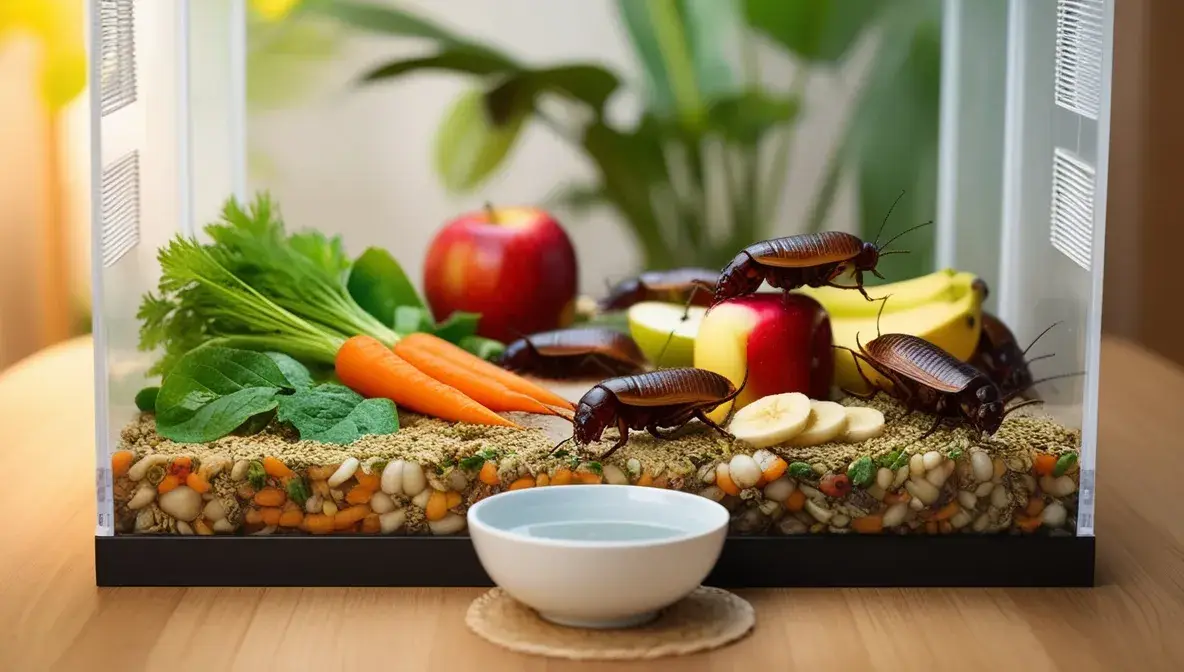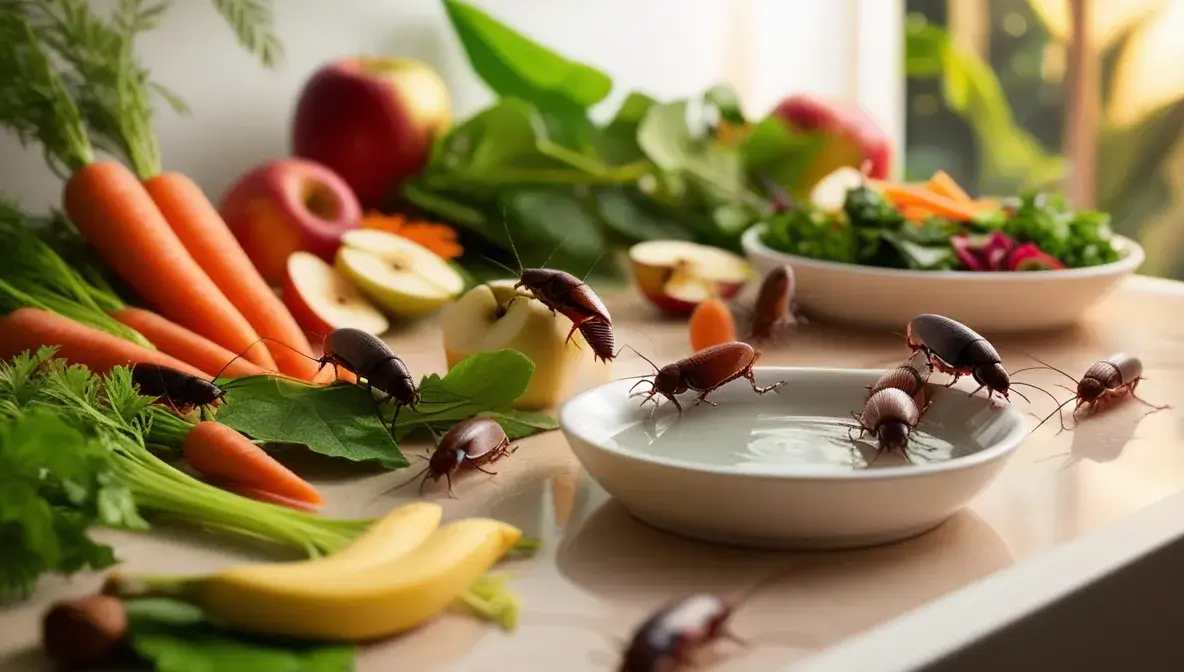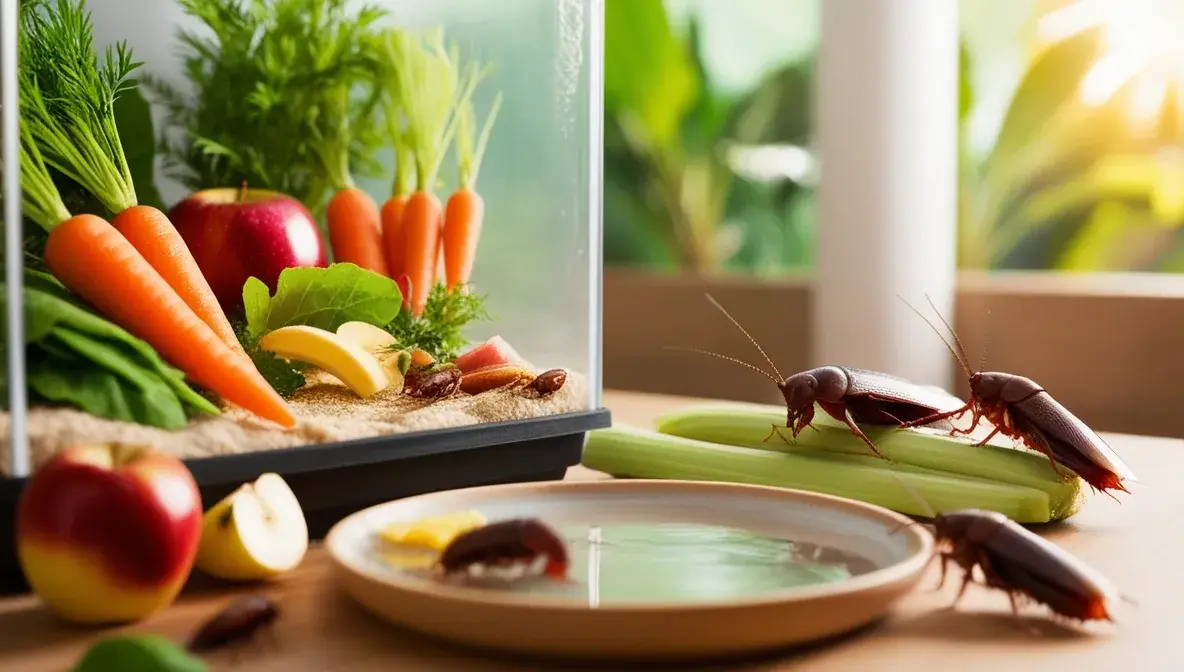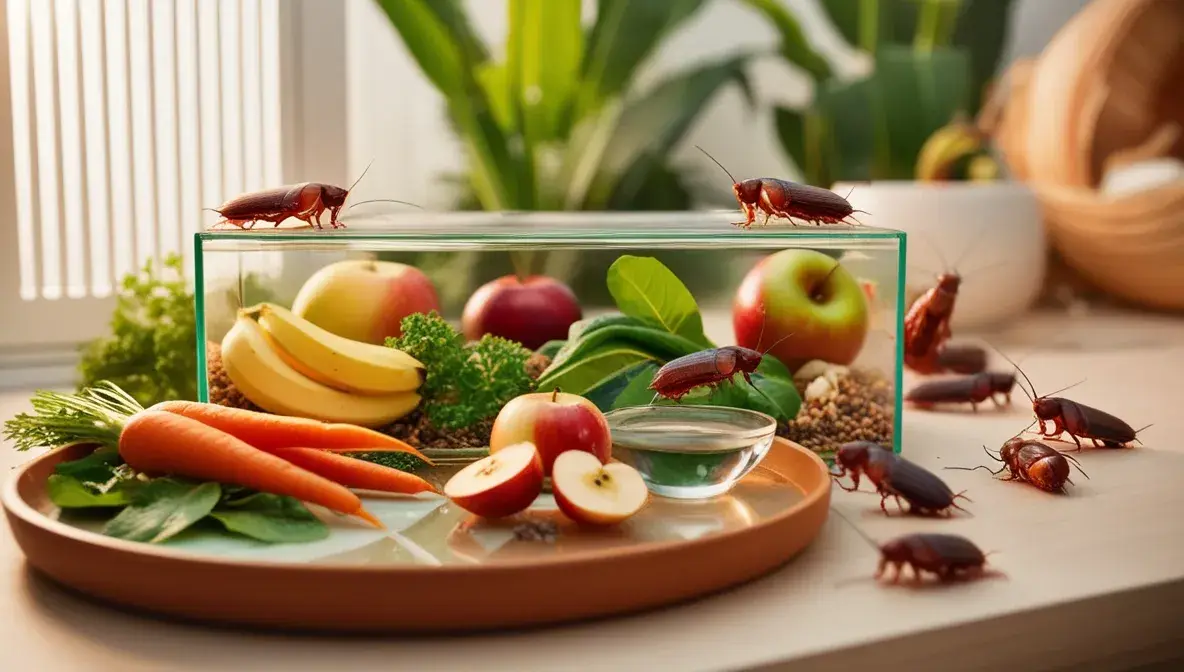If you’ve ever wondered, “What do I feed my Dubia roaches?” you’re not alone. Proper nutrition is essential to keep your Dubia roaches healthy, whether you’re raising them as feeders for your reptiles or breeding them for a sustainable colony. The diet you provide directly impacts their health, reproduction, and the nutrition they pass on to your reptiles. In this guide, we’ll explore everything you need to know about feeding Dubia roaches, including the best foods, feeding tips, and common mistakes to avoid.
Why Feeding Dubia Roaches Properly Matters

Dubia roaches (Blaptica dubia) are one of the most popular feeder insects for reptiles, amphibians, and other exotic pets. Their high protein content, low-fat levels, and ease of care make them a staple in the diets of animals like bearded dragons, leopard geckos, and tarantulas. But to ensure they offer the best nutrition to your pets, you need to provide them with a healthy diet.
A poorly fed Dubia roach will lack the nutrients your reptiles need, and feeding them unhealthy foods can even harm your pets. This is why “gut-loading” (feeding nutrient-rich foods to your feeders before offering them to your pets) is so important. Not only does it improve the nutritional value of the roaches, but it also enhances their overall health and breeding success.
Let’s dive into what you should—and shouldn’t—feed your Dubia roaches to keep your colony thriving.
The Best Foods to Feed Dubia Roaches

Fresh Fruits and Vegetables
Fresh produce should make up the bulk of your Dubia roaches’ diet. These foods provide essential vitamins, minerals, and moisture, which are key to their health.
Best Fruits for Dubia Roaches:
- Apples
- Bananas
- Oranges (in small amounts for vitamin C)
- Berries
- Melons (e.g., watermelon, cantaloupe)
Best Vegetables for Dubia Roaches:
- Carrots
- Sweet potatoes
- Zucchini
- Squash
- Leafy greens (e.g., collard greens, kale, dandelion greens)
Feeding Tips:
- Always wash produce thoroughly to remove pesticides or chemicals.
- Cut fruits and vegetables into small, manageable pieces.
- Remove uneaten food after 24–48 hours to prevent mold or bacterial growth.
High-Quality Commercial Diets
Specially formulated roach chow or insect diets can supplement fresh produce. These commercial feeds are designed to provide balanced nutrition, particularly for gut-loading Dubia roaches. Look for products high in protein and free of harmful additives.
Recommended Commercial Diets:
- Roach chow blends made from grains and legumes
- High-protein fish flakes (sparingly)
- Chicken layer feed (non-medicated)
Quick Tip: Combine commercial diets with fresh fruits and vegetables for a well-rounded feeding plan.
Protein-Rich Foods
While Dubia roaches don’t require excessive protein, small amounts are beneficial for breeding adults and growing nymphs.
Good Sources of Protein for Dubia Roaches:
- Dry dog or cat food (crushed and non-medicated)
- Ground oats or wheat bran
- Cooked eggs (in moderation)
Important Note: Avoid overfeeding protein, as it can lead to health issues like gout in roaches.
Foods to Avoid When Feeding Dubia Roaches

Not all foods are safe or beneficial for Dubia roaches. Some can harm their health, and others may pass on harmful substances to your reptiles.
Avoid These Foods:
- Citrus fruits (except in small amounts, like oranges)
- Onions, garlic, and other strong-smelling vegetables
- Processed or sugary foods
- Moldy or spoiled food
- Meat products (except for small amounts of cooked eggs)
Why Avoid Citrus in Large Quantities?
Though small amounts of citrus can provide vitamin C, excessive citrus can lead to digestive issues and dehydration in Dubia roaches.
How to Feed Dubia Roaches
Step-by-Step Feeding Instructions
- Choose Fresh Foods: Select a mix of fruits, vegetables, and protein-rich options. Use high-quality commercial chow as a supplement.
- Prepare the Food: Wash and chop produce into small pieces. Crush dry foods like dog kibble or oats for easier consumption.
- Provide Food in a Dish: Use a shallow dish to keep food off the substrate and avoid contamination.
- Remove Leftovers: Check the enclosure daily and remove uneaten food to prevent mold, pests, or foul odors.
- Offer Water Sources: Provide hydration by using water crystals or gel. Avoid standing water, as it can drown roaches.
Quick Tip: Feed roaches every 1–2 days to keep them well-fed and reduce waste.
Gut-Loading Your Dubia Roaches
Gut-loading is the process of feeding your roaches nutrient-dense foods 24–48 hours before offering them to your pets. This step ensures your reptiles receive the maximum nutritional benefit.
Best Gut-Loading Foods for Dubia Roaches:
- Dark leafy greens (e.g., collards, mustard greens)
- Sweet potatoes
- Carrots
- High-quality roach chow
Pro Tip: Avoid gut-loading with foods high in oxalates (e.g., spinach), which can bind calcium and reduce its absorption in reptiles.
Common Misconceptions About Feeding Dubia Roaches
“Dubia Roaches Can Eat Anything”
While Dubia roaches are hardy scavengers, feeding them poor-quality or harmful foods can lead to health issues. Always provide clean, nutritious foods.
“They Don’t Need Water”
Though Dubia roaches get moisture from their food, supplemental hydration is essential for breeding and survival. Use water crystals or gels to prevent dehydration.
Troubleshooting Feeding Problems
Problem: Roaches aren’t eating.
Solution: Ensure the food is fresh, and the temperature and humidity of the enclosure are optimal (70–90°F and 40–60% humidity).
Problem: Moldy food in the enclosure.
Solution: Remove food promptly and clean the enclosure regularly. Use small portions to reduce waste.
Conclusion
Feeding Dubia roaches properly is the foundation of a healthy, thriving colony—and ensures your reptiles get the best nutrition possible. By providing a balanced diet of fresh fruits, vegetables, protein sources, and commercial chow, you can keep your roaches healthy, boost their reproduction, and maximize their value as feeder insects.
Remember to avoid harmful foods, practice gut-loading, and maintain a clean enclosure to prevent issues like mold or pests.
Do you have tips or experiences with feeding Dubia roaches? Share them in the comments below! And for more expert advice on feeder insects and reptile care, explore our related posts Drguidez.
This detailed guide can help you make informed decisions and better understand how to care for your Dubia roaches. With the right diet, your colony will thrive—and so will your reptiles!

Mark Manson is an expert blogger specializing in Dubia Roaches. He shares practical care tips, breeding insights, and feeding advice to help enthusiasts and reptile owners thrive.

